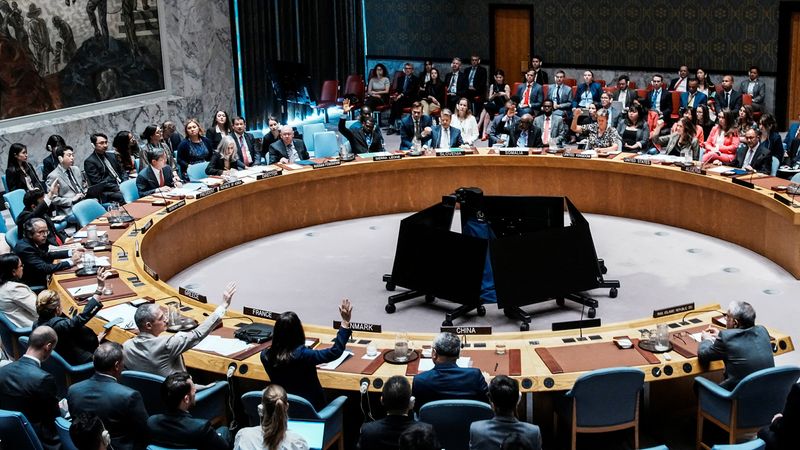By Michelle Nichols
UNITED NATIONS (Reuters) – The United Nations Security Council did not adopt a draft resolution on Friday to permanently lift sanctions on Iran, but Tehran and key European powers still have eight days to try and agree to a delay.
The 15-member U.N. Security Council was required to vote on the draft resolution on Friday after Britain, France and Germany launched a 30-day process on August 28 to reimpose U.N. sanctions, accusing Tehran of failing to abide by a 2015 deal with world powers that aimed to prevent it from developing a nuclear weapon. Iran denies having any such intention.
Russia, China, Pakistan and Algeria voted in favor of the draft text on Friday. Nine members voted against it, while two abstained.
The Security Council vote has now set up a week of intense diplomacy while world leaders – including Iran’s President Masoud Pezeshkian – are in New York for the annual high-level U.N. General Assembly.
EUROPEANS SAY IRAN MUST MEET CERTAIN CONDITIONS
Britain, France and Germany have offered to delay reinstating sanctions for up to six months – to allow space for talks on a long-term deal on Tehran’s nuclear program – if Iran restores access for U.N. nuclear inspectors, addresses concerns about its stock of enriched uranium, and engages in talks with the United States.
“Without these most basic conditions being met, there is no clear path to a swift diplomatic solution. We regret that Iran has so far failed to take these steps, and we urge them to act now,” Britain’s U.N. Ambassador Barbara Woodward told the council. “We are ready for further engagements, diplomatically, in the next week, and beyond to seek to resolve differences.”
Any delay on reimposing sanctions would require a Security Council resolution. If a deal on an extension can’t be reached by the end of September 27 then all U.N. sanctions will be reimposed.
Acting U.S. Ambassador Dorothy Shea said that while the U.S. voted “no” on Friday, it “does not impede the possibility of real diplomacy”, adding that a return of sanctions on Iran “does not preclude later removal through diplomacy”.
“More importantly, President Trump has continued to reiterate the United States’ ongoing readiness for meaningful, direct, and timebound dialogue with Iran – be it prior to the conclusion of the snapback process on September 27, or after,” she told the council.
French U.N. Ambassador Jerome Bonnafont said that since the 30-day process – known as snapback – was triggered, the foreign ministers of Germany, France and Britain had met twice with their Iranian counterpart.
“Our hand remains outstretched to find a negotiated solution,” he told the council before the vote.
Separately, Iran’s strategic allies Russia and China finalized a draft Security Council resolution late last month that would extend the 2015 deal for six months and urge all parties to immediately resume negotiations. But they have not yet asked for a vote.
(Reporting by Michelle Nichols; Editing by Gareth Jones)

